Palestinian women networks: towards an inclusive Security and Justice sectors
Activities carried out by the EU Police and Rule of Law Mission are helping to spread a culture of gender equality and women empowerment across different law enforcement entities in Palestine. Through dedicated training and support, The mission seeks to help local agencies in becoming better equipped to deal with infringements on women and girls’ rights.
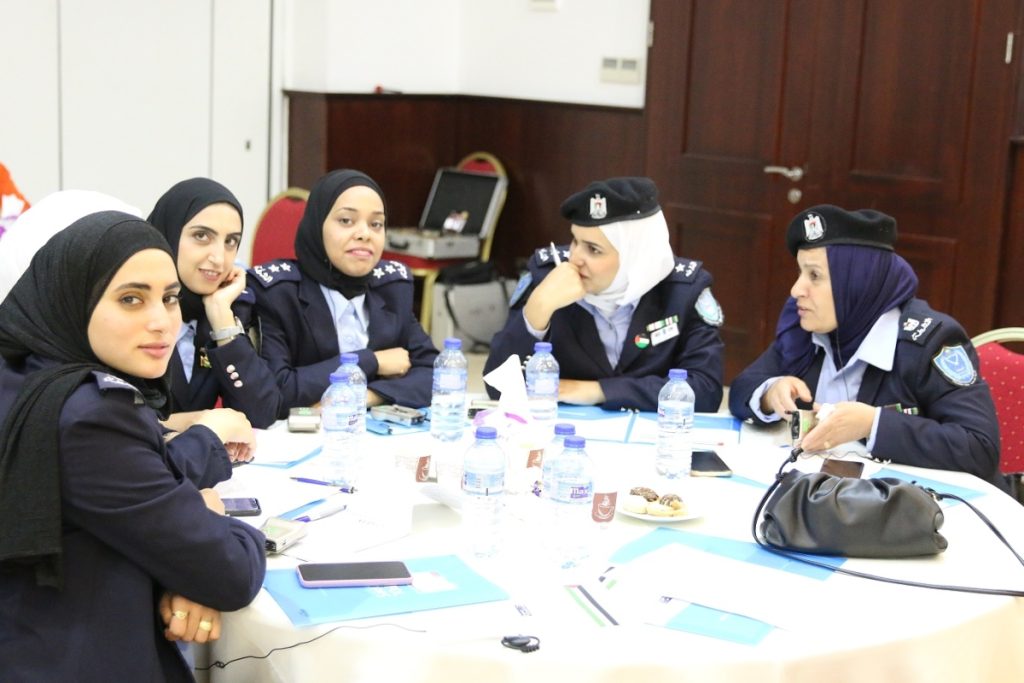
Police service can be difficult even under the most favorable conditions. In the Palestinian context, where a complex web of laws and by-laws continues to impede on women’s equal rights across the security and justice sectors it could appear almost impossible.
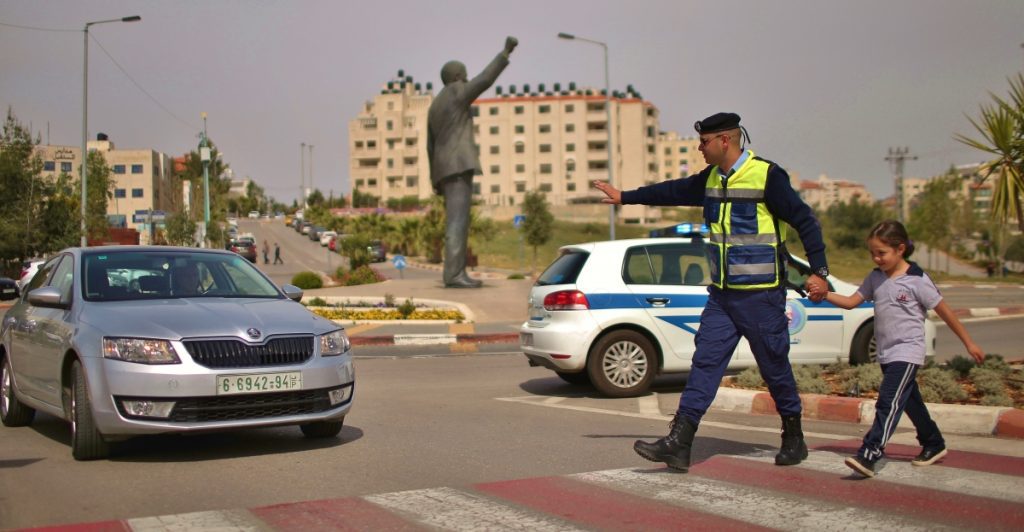
Making history: launch of the first Palestinian Police Women Network
Nevertheless, it is beaming with pride that two female police officers pose for a picture a few months after the launch of the Palestinian Police Women Network (PPWN) in May 2022 in Ramallah. Titled “Shaping the future of Palestinian Police Women”, the regional conference was deemed as “historic and very successful” by participants, which included 224 policewomen from Jordan, Türkiye, Bangladesh and the International Association of Women Police, among others.
“This network will help to make the police force more coherent to respond to the expectations of people and obtain long-lasting sustainable impact. Once you are organised at the domestic level here in Palestine, you can link up and interact with the other police women’s networks in other parts of the world,” said Head of EUPOL COPPS Mission Nataliya Apostolova at the launch.
Support to the Palestinian Civil Police is part of the EUPOL COPPS’ action in Palestine, where it works hand in hand with local and international partners to further improve citizens’ safety and security by strengthening the capacities of the civil police, law enforcement agencies and the judiciary.
“As the Palestinian Police women establish their position and leadership in the policing universe, continued support, mentorship and advice will be provided to assist them on their journey,” explains an adviser working with the Mission, adding that “through our work we aim to support the Palestinian Civil Police (PCP) women officers in joining the international stage with their other policing sisters around the globe.” While adding that as the Palestinian women police officers expand their network, so too will the support systems expand through the association..
The importance of networks is hailed as “inevitable” by the mission’s advisers, who stress that “networks facilitate and stimulate the exchange of experiences, values and knowledge. As a platform for dialogue, the network acts as a bridge across borders with a wealth of best practices and inspirations for women practitioners.”
“Through the network, expertise and learning lessons are shared to create innovative approaches on gender equality for future generations of women in security and justice.”
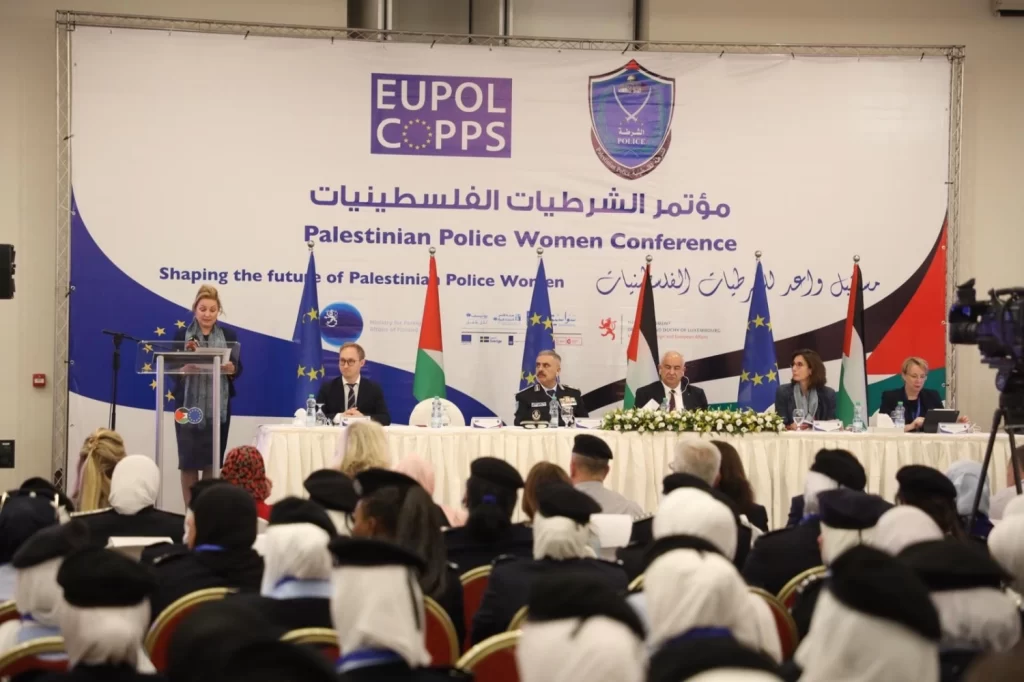
Regaining a voice: promoting a victim-centered approach
The exchange of experiences is considered a crucial tool in raising awareness of women’s rights and security across Palestine, which still bears the heavy burden of domestic violence and gender inequality.
“Because there is no law on domestic and gender-based violence, we still witness widespread cases of women experiencing gender-based violence. It is really a key challenge here,” explains an adviser working with the mission. She noted that over 29 percent of women in Palestine have experienced domestic and gender violence, a figure exacerbated by the COVID-19 pandemic. .
Meanwhile, child marriage stands at a staggering 24 per cent.
“Unfortunately, women and girls victims of these crimes are still very reluctant to report them or ask for follow up assistance,” she highlights.
To break down this barrier, EUPOL COPPS believes in having more women represented in the security and justice sector institutions. “This will help support a more proportional representation of the Palestinian society’s needs, concerns and grievances and help address all of its people’s needs more effectively,” the adviser explains, noting that a more balanced representation will also enhance the confidence and trust of female citizens in their institutions.
This is true for the police force but also for female lawyers and judges. Since the mission along with international partners started promoting and introducing gender responsive approaches in the field of justice, Palestine witnessed an increase of 31 per cent in convictions of perpetrators in Gender Based Violence cases.
Actions taken included capacity building activities for the Judicial Council with the training of judges on a gender sensitive approach, supporting the development of specialised capacities and procedures on domestic and gender-based violence. Specifically, there was a focus on increasing the investigative powers of the police and promoting collaboration in the handling of such cases.
A number of workshops were also organised to strengthen police-prosecution cooperation with respect to a victim centered approach, fair trial principles, child victims and witnesses of domestic violence.
“Ultimately, women’s access to justice and protection is adapted from a gender lens, thereby reducing the risk for discriminatory practices and harmful norms in the justice chain,” explains an adviser from the Criminal Justice Team.
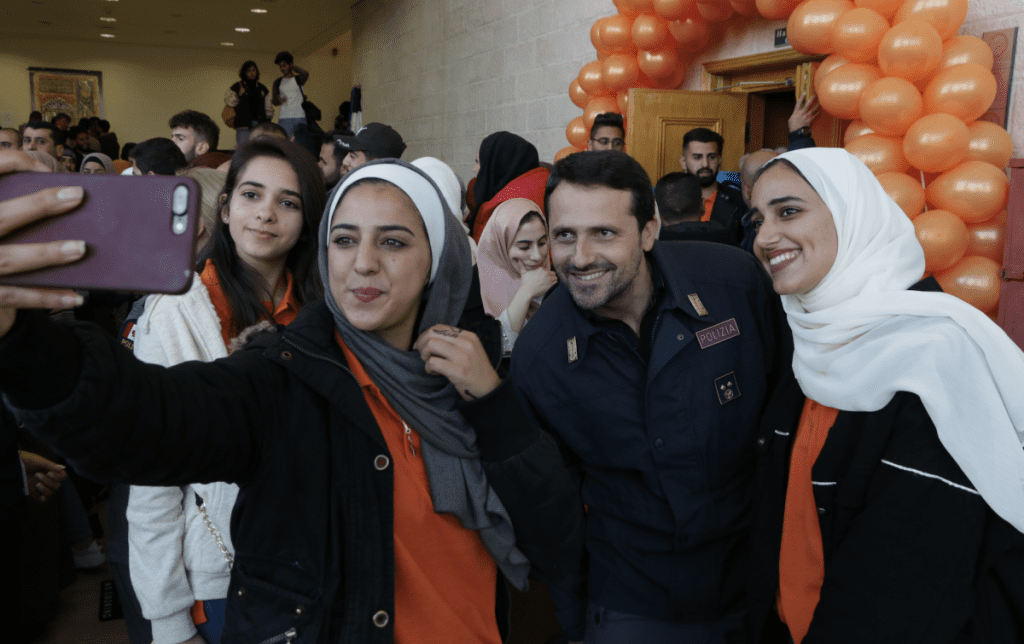
Breaking taboos
EUPOL COPPS also strives to give women and men channels to express their daily struggles, including on mental health issues.
In January 2023, 44 Palestinian Civil Police officers participated in a two-day workshop on “Mental First Aid and Suicide Prevention”, which trained them on better handling cases involving mental health issues.
“It is crucial for officers from the Family and Juvenile Protection Department to be aware of the common risk factors and warning signs of a suicidal person and how, as first responders, they can help,” explains an adviser from the EUPOL COPPS police team.
Participants also learned how to deal with suicidal victims, traumatised women and girls, as well as psychological shock trauma. “The feedback from the participants was very positive. They engaged in an in-depth discussion on the topic, with open dialogue on experiences, challenges and struggles with victims as well as other colleagues,” the adviser recalls.
Plans are already in motion to set up additional training programmes on mental health, with the aim of building the Department officers’ capacity to conduct trainings internally. Through this training of trainers’ approach, EUPOL COPPS representatives insist on the importance of sustainable progress in the protection of human rights, deeply rooted in local ownership. A human rights-based approach as well as local ownership is incorporated into all of EUPOL COPPS’ activities, and remains a silver thread throughout mandate implementation.
“For this mental health training for instance, we ensured that it was accompanied by an evaluation process to ensure sustainability. It is not meant to be a one-off but rather the first step of a long yet successful journey,” the adviser concludes.
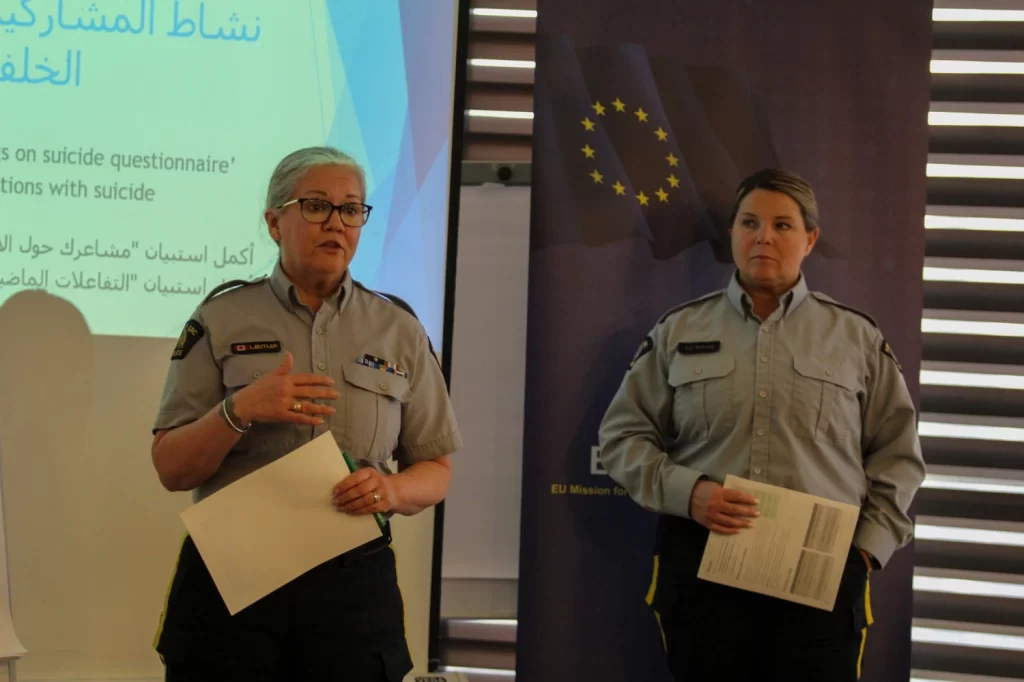
The Mission
Established in 2006, EUPOL COPPS, is the European Union Police and Rule of Law Mission for the Palestinian Territory.
The Mission’s objective is to improve the safety and security of the Palestinian people. It forms part of the wider EU effort to support Palestinian state building, in the context of working towards a comprehensive peace, based on a two-State solution.
More specifically, the Mission aims to support the Palestinian Civil Police reform and development; strengthen and support the Criminal Justice System; improve Prosecution-Police cooperation; and coordinate and facilitate external donor assistance to the Palestinian Civil Police.





























 Syria
Syria 


